MIT Portugal Discussed Spaceship Earth at Ciência 2020
On November 3rd, the MIT Portugal held the webinar session “The Spaceship we call Planet Earth” at Ciencia 2020.
2020 marks the 50th anniversary of Earth Day, and MIT Portugal was excited to highlight this milestone. We all live aboard spaceship Earth, and like any other vessel, it’s important to monitor its needs and changes. In this session, MIT Portugal discussed Earth Systems and Climate Sciences through the perspective of MIT and Portuguese researchers.
The webinar started with the MIT Portugal new institutional video, followed by the welcome notes from Zita Martins, the National Co-Director of the MIT Portugal Program, which point out the work developed by MIT Portugal Program “to make Portugal a lead fighter for Earth”. The session proceeded with Dava Newman, Director of the MIT Portugal Program at MIT, who talked about Earth’s Vital Signs. “This is the decade to change hearts and minds to act, every person, every day to live in balance with our home planet”, Dava Newman said.
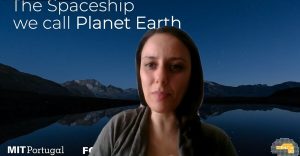
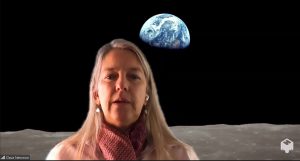
The second topic of discussion was the plastic marine litter problem and the SMART (diStributed AI systeM for mArine plastic debRis monitoring) solution presented by the MIT Portugal Team who submitted a proposal for the AI Moonshot Challenge.
Over the summer, the AI Moonshot Challenge was calling for proposals on fighting Earth’s problems with Artificial Intelligence and Space tech. This was a global competition, promoted by FCT, PT Space, ESA, Unbabel and ANI to advance monitoring of plastic litter on a planetary scale. MIT Portugal assembled a team of Portuguese and MIT researchers to tackle this global problem.
Leonardo Azevedo, Assistant Professor in Técnico, Lisbon; Renato Mendes, Postdoctoral Researcher of a joint project between CIIMAR (University of Porto) and CESAM (University of Aveiro); Luísa Lamas, Researcher at Instituto Hidrográfico; and Björn Lütjens, grad student at the Human Systems Laboratory, AeroAStro MIT, were some of the team members that presented the SMART Project and shared their experience about how they combined efforts to address this challenge.
| SMART is a research project which represents a collaborative international effort and unique ecosystem formed by Portuguese academic institutions, the Portuguese Hydrographic Office, and the MIT Portugal Program. SMART will use a physics-guided deep learning approach to combine large amounts of satellite data with high-resolution ocean models, in-situ validation, and citizen science to create probability of plastic occurrence maps. This will allow authorities to create strategies for ocean remediation while making decisions under uncertain conditions. |
The final talk was made by Lígia F. Coelho, a MIT Portugal Student at Técnico and a team member of the Blue Origin Student Payload Competition Finalist Team EM²C. Lígia talked about Arctic microalgae, microgravity, and life support in space and shared her experience on the Blue Origin Student Payload Competition, a MIT Portugal NanoLab Student Payload Competition with Blue Origin to include a nano-experiment onboard the New Shepard rocket.
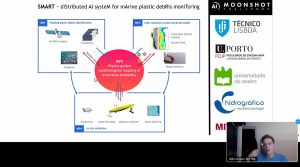
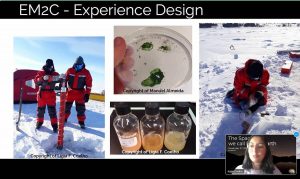
The session was moderated by Alexandre Ferreira da Silva, Executive Coordinator of MIT Portugal Program, and had more than 50 online participants.
———————————————-
Ciência 2020 also included sessions with MPP and MIT speakers. On the second day of Ciência, November 4th, our MPP Co-director, Zita Martins, talked at the session “Portugal in Space for Science and Exploration”, were she discusses the past, present, and future of these areas in Portugal with a focus on the role of Portugal in the global endeavor towards understanding and exploring Space.
Recording available here.
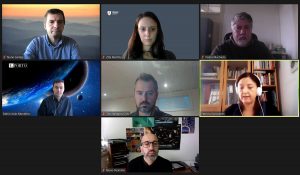
Additionally, Manuel Heitor, Minister of Science, Technology, and Higher Education, introduced speakers from MIT, Prof. Eric Von Hippel, an American economist and a professor at the MIT Sloan School of Management, and Prof. Robert Langer, from Langer Lab – MIT Department of Chemical Engineering, who has discussed how science can change our lives.
